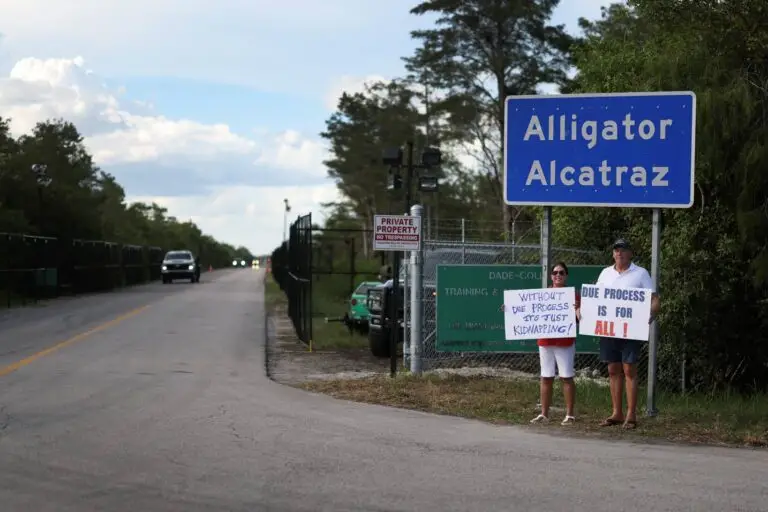In a tense legal battle over one of Florida’s most polarizing detention facilities, a U.S. federal appeals court has temporarily overruled efforts to shutter the makeshift migrant center built deep in the Everglades.
The facility—erected within days on an abandoned military airstrip—has drawn criticism from environmentalists, human rights advocates, and local leaders alike. Yet, for now, it will remain operational as the Trump administration challenges a lower court’s order that would have effectively closed it.
The three-judge panel from the 11th Circuit Court of Appeals issued a ruling allowing the facility to continue detaining undocumented migrants while the federal government proceeds with its appeal. The lower court had previously ordered an immediate halt to operations and demanded full dismantling within two months.
At the heart of the lawsuit are accusations that the center was fast-tracked without due diligence—specifically, without conducting required environmental assessments. Advocacy groups argue that the location endangers the Everglades’ fragile ecosystem and was selected without regard for its proximity to protected wildlife.
Environmental and civil rights groups point to the facility’s crude construction—temporary tents, metallic enclosures, and barracks-style sleeping quarters—assembled in just over a week. Critics have dubbed it dystopian, highlighting reports of detainees suffering from a lack of healthcare, legal access, and basic human conditions.
The center, reportedly designed to house up to 3,000 migrants, became a political flashpoint after former President Donald Trump visited the site shortly after its launch. Trump praised the operation’s “toughness” and half-joked that Florida’s abundant alligator population would help “keep order,” reinforcing the site’s unofficial moniker: “Alligator Alcatraz.”
The facility’s future remains uncertain as the legal fight escalates. If the appeals court ultimately upholds the original shutdown order, the site will need to be decommissioned entirely—a move that would likely ignite another round of political firestorms over immigration policy, environmental law, and the limits of executive power.
For now, the controversial compound stands, a stark symbol of America’s ongoing immigration divide—at once a logistical solution, a legal battleground, and a lightning rod for criticism.






